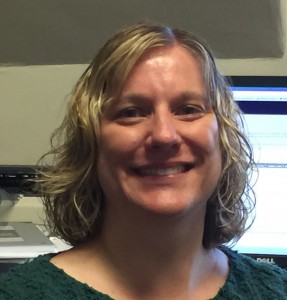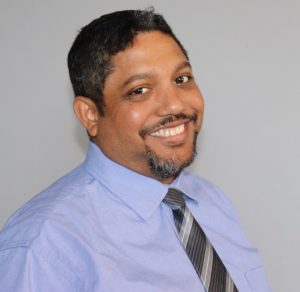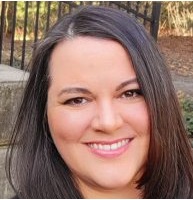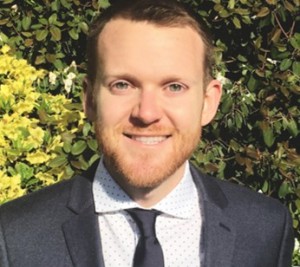 |
Kari Adamsons, PhD. Associate Professor of Human Development and Family Sciences at the University of Connecticut. Her principle research focus is fathering, and particularly the ways in which parenting roles are negotiated across contexts and transitions (e.g., divorce, transition to parenthood). Dr. Adamsons is also interested in family theory and has scholarly expertise in couple relationships and the factors that affect couple processes and outcomes, including the ways in which parental acceptance and rejection influence relationships in adulthood.
kari.adamsons@uconn.edu phone: 860.486 .8971 |

|
Alaina Brenick, PhD., Associate Professor of Human Development and Family Sciences at the University of Connecticut. Her research focuses on youth’s experiences of and social and moral reasoning about peer victimization—namely, bullying, discrimination, and exclusion—based on group membership. Furthermore, she has conducted research on interpersonal exclusion and intergroup relations of diverse groups of children from the United States, Colombia, Germany, and the Middle East, areas of the world with current or historic tensions. Moreover, she examines the social, cognitive, and emotional outcomes of group-based victimization, the roles of contact, identity, and culture in these phenomena, and intervention efforts to promote positive intergroup dynamics in youth development.
alaina.brenick@uconn.edu phone: 860.570.9084 |
 |
Preston A. Britner, PhD., Professor and Philip E. Austin Endowed Chair in the Department of Human Development & Family Sciences at the University of Connecticut, Storrs. Dr. Britner’s scholarship and expertise regarding parenting, parent-child relations, and child development fit well with the Center’s mission. In addition, his work in research and outreach at the local, state, and national level is invaluable in promoting the Center’s vision. preston.britner@uconn.edu phone: 860.486.3765 |
 |
Annamaria Csizmadia, PhD., Associate Professor in the Human Development & Family Sciences (HDFS) at the University of Connecticut, Stamford. With particular attention to multicultural and immigrant children, Dr. Csizmadia investigates the role that culturally relevant predictors such as ethnic-racial identity and ethnic-racial socialization play in ethnic-racial minority children’s development. The concept of interpersonal acceptance-rejection has considerable relevance for the study of multiracial children who develop in a racially stratified and largely monoracially oriented society. Dr. Csizmadia is particularly interested in extending and applying PARTheory to understanding how parents teach their multiracial children about race, their social position in the U.S. hierarchy, and how to interact with monoracial peers. She has published in Family, Relations, Social Development, Parenting: Sciences and Practice, Advances in Life Course Research, Sociological Compass, Journal of Marriage and Family, Journal of Black Psychology, and Maternal and Child Health Journal. Dr. Csizmadia holds a Ph.D. in Human Development and Family Studies from the University of Missouri. annamaria.csizmadia@uconn.edu phone: 203.251.9586 |
 |
Amanda Denes, PhD., Associate Professor in the Department of Communication at the University of Connecticut, Storrs. Her research focuses on communication in various types of interpersonal relationships such as romantic relationships, parent-child relationships, and friendships. Much of her work looks at the association between communication in interpersonal relationships and people’s physiological, psychological, and relational health. In particular, she is interested in why individuals disclose information about themselves to others, how they disclose that information, and the effects of such disclosures on individuals and their relationships. amanda.denes@uconn.edu phone: 860.486.6139 |
 |
Caitlin Elsaesser, Ph.D., Associate Professor in the School of Social Work at the University of Connecticut. Her work focuses on better understanding the developmental impact of stress – particularly violence and victimization – among youth living in urban environments. Her research aims to identify targets for intervention that can reduce the negative impact of these experiences, with a special focus on school experiences. Her recent work focuses on how social media platforms influence the transmission of youth violence and victimization. caitlin.elsaesser@uconn.eduphone: (959) 200-3671 |
 |
Julian D. Ford, PhD., Professor in the Department of Psychiatry at UConn Health. He conducts therapy with adult and child survivors of trauma, as well as research on assessment and treatment of Post-Traumatic Stress Disorder (PTSD) and disorders of extreme stress following complex trauma. Dr. Ford has developed the TARGET (Trauma Affect Regulation: Guidelines for Education and Therapy; www.ptsdfreedom.org) model for adults receiving services for chronic mental illness and addictions, emergency medical care, domestic violence, and in correctional settings, as well as for youths and families who are involved in the child welfare and juvenile justice systems in Connecticut and Florida. Currently he is the Director of the University of Connecticut TARGET affiliate site within the SAMHSA National Child Traumatic Stress Network. Since November 2001 he has been Director of the Center for Trauma Response, Recovery, and Preparedness (www.CTRP.org), which is dedicated to the development of systems of services for communities affected by mass trauma. Dr. Ford also serves as a Senior Academic Fellow with the Child Health and Development Institute. ford@psychiatry.uchc.edu phone: 800.535.6232 |
 |
Jodie Comer Oshana, JD, PhD. Visiting Assistant Professor of Human Development and Family Sciences at the University of Connecticut. Dr. Oshana previously spent 10 years practicing law, primarily in family and juvenile courts. Her research interests focus on child welfare issues, including children involved in the legal system as a result of abuse/neglect proceedings or custody proceedings. Additionally, Dr. Oshana’s research interests include the ways in which parental acceptance and rejection impact the best interests of the child and influence the outcomes of legal proceedings involving children. jodie.oshana@uconn.edu phone: 860.486.4720 |
 |
Ronald P. Rohner, Ph.D., is Director of the Rohner Center and Professor Emeritus of Family Sciences and Anthropology at the University of Connecticut, Storrs. During the course of his doctoral studies at Stanford University he developed a lasting interest in the antecedents and consequences of parental acceptance and rejection, which is now referred to as Interpersonal Acceptance-Rejection Theory (IPARTheory). His research interest is embedded in a large intellectual commitment to the field of family studies and cross-cultural psychology –especially as these fields converge on issues of interpersonal and parent-child relations in America and Internationally. Dr. Rohner’s theory is recognized internationally, and his research is cited frequently in textbooks and professional journals. Due to his dedication and lifelong commitment to research he was given the American Psychological Association’s (APA) award for Distinguished Contributions to the International Advancement of Psychology in 2004, APA’s Division of International Psychology Award for Outstanding Psychologist in the US, the APA Henry David International Mentoring Award in 2017, and the Jean Lau Chin Award for Outstanding Professional Psychologist in International Leadership Contribution in 2023. r.rohner@uconn.edu phone: 860.486.0073 |
 |
Sean Seepersad, PhD., is Adjunct Professor in Human Development and Family Sciences, Hartford Branch, UCONN. His research focuses primarily on loneliness, specifically on effective intervention programs to help the lonely—as well as the ways social media and internet usage influence feelings of loneliness. As part of his intervention work, he has focused on how interpersonal acceptance and rejection influences the way in which individuals think about and behave in relationships. Dr. Seepersad is also currently the CEO/President of the Web of Loneliness Institute, Inc., a nonprofit organization that seeks to reduce loneliness globally through building awareness, research, intervention, and consulting.
sean.seepersad@uconn.edu phone: 860.578.4922 |
 |
Rhiannon Smith, PhD., is Associate Professor in the Department of Psychology at the University of Connecticut. Her research focuses on peer relationships and social-emotional adjustment in childhood and adolescence. She is interested in interpersonal acceptance and rejection by the broader peer group, as well as in close dyadic friendships. In particular, her work on peer groups has examined associations of aggressive and prosocial behavior with peer acceptance, rejection, and peer-perceived popularity. In her work on close friendships, Dr. Smith studies disclosure processes in youths’ conversations with friends and links with acceptance in terms of friendships quality and emotional closeness. She also investigates youths’ acceptance of peers who are different from themselves and friendship formation across difference, including cross-sex and cross-race/ethnicity friendships.
rhiannon.smith@uconn.edu phone: 860.486.4941 |
 |
Ryan J. Watson, PhD., is an Associate Professor in the department of Human Development and Family Sciences at the University of Connecticut. He explores protective factors for vulnerable adolescents, with a focus on interpersonal relationships. Dr. Watson situates himself as a mixed-methods interdisciplinary family scientist and draws from life course and developmental frameworks. He is particularly interested in extending IPARTheory to sexual and gender minority youth. To date, research has been slow to disentangle how sexuality-specific parent support (e.g., acceptance of sexual orientation) operates differently from general parent support; these nuances might differentially contribute to the health and well-being of sexual minority youth. To further advance the scholarship of interpersonal relationships and sexual minority youth, Dr. Watson has used both population-based and non-probability datasets from the US, Norway, and Canada to examine how social support (friends, teachers, and parents) may attenuate the impact of risk factors such as victimization, homophobia, and stigma on well-being. He continues to research how social support provides a foundation for achievement and healthy outcomes for vulnerable youth. ryan.j.watson@uconn.edu phone: 860.486.1659 |
 |
Na Zhang, PhD., is an Assistant Professor in the department of Human Development and Family Sciences at the University of Connecticut. As a family scholar and prevention scientist, her program of research centers around the intrapersonal and interpersonal pathways involved in the development of psychopathology and resilience among youth and adults who were exposed to stressful or traumatic experiences. One major focus of her research is on the development and evaluation of behavioral parent training programs that consider parents as the agents of change. For example, she has evaluated the proximal or distal outcomes, mechanisms of change, and implementation processes of these programs, including how parental acceptance or rejection may lead to resilience or maladaptation outcomes in children from at-risk families (e.g., post-deployed military families, parentally bereaved families, and divorced families). Her current program of research focuses on mindfulness training as an effective intervention strategy to strengthen and optimize parenting programs. Mindfulness training is a promising approach to reducing parents’ mental health problems such as depression, anxiety, and stress, and to increasing parents’ responses to a behavioral parent-training program that focuses on effective parenting. nazhang@uconn.edu phone: 203.251.8531 |